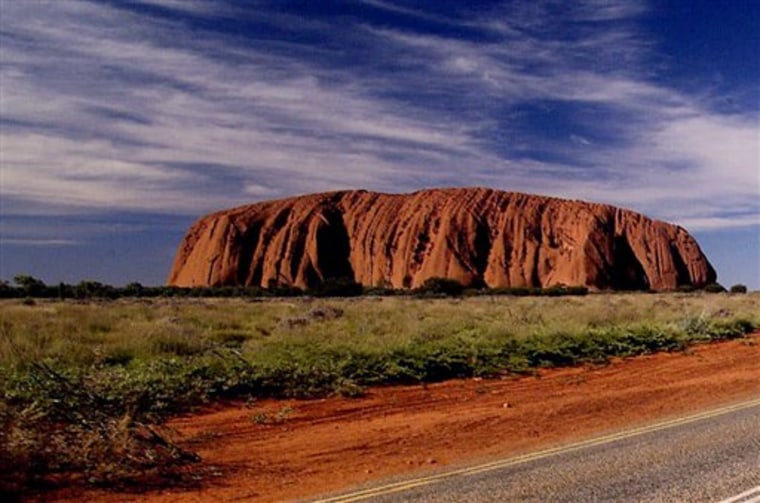The traditional owners of Ayers Rock threatened Tuesday to ban tourists from climbing Australia's iconic monolith in response to a government plan to combat child abuse in the Outback.
Aborigines say the plan is heavy-handed and accuse the government of trying to use it to roll back indigenous land rights.
Prime Minister John Howard rejected criticism of his plan, saying it was interventionist but necessary to stop the child sexual abuse that a recent report concluded was rampant in Aboriginal communities in Australia's Northern Territory.
Aboriginal leaders also said some families are fleeing their townships, fearful that police and troops being deployed under the government's plan were coming to take their children away.
Officials said the first police and troops sent to restore order under the initial phase of the plan would arrive in a handful of communities on Wednesday.
One of the first townships to be subject to the plan is Mutitjulu, in the shadow of Ayers Rock, or Uluru, the red monolith in the central Australian desert that draws some 500,000 visitors a year. Media reports last year of child prostitution and of children trading sex for gasoline to sniff prompted the recent government inquiry.
Families fear kids will be take away
Local families are terrified their children will be taken away under the new plan and are fleeing to the sand hills to avoid authorities, Mutitjulu elders said Tuesday.
"I thought the government was here to protect them. They're scaring the living daylights out of the kids and women," resident Mario Giuseppe said. "They think that the army's coming to grab their kids and the police are coming to help them take them away."
The fears expose a lingering wariness of child welfare authorities among Aborigines, many of whom are victims of now discredited government assimilation policies that lasted until the 1970s in which generations of indigenous children were forcibly sent to live with white Australian families.
Mutitjulu leader Vince Forrester said Uluru's traditional owners are also considering a civil disobedience campaign that would include a ban on climbing the rock.
"The tourist industry brings a lot of dollars into the territory and tourists all come to Uluru," Forrester told Australian Broadcasting Corp. radio. "Obviously, civil disobedience can come in protest form."
Howard stood by his plan.
"What has to be understood now is that the old approach has not worked," he told reporters. "If we are to save generation of indigenous children from the most appalling abuse, we must intervene in the way that I have outlined and we will maintain our position very strongly."
